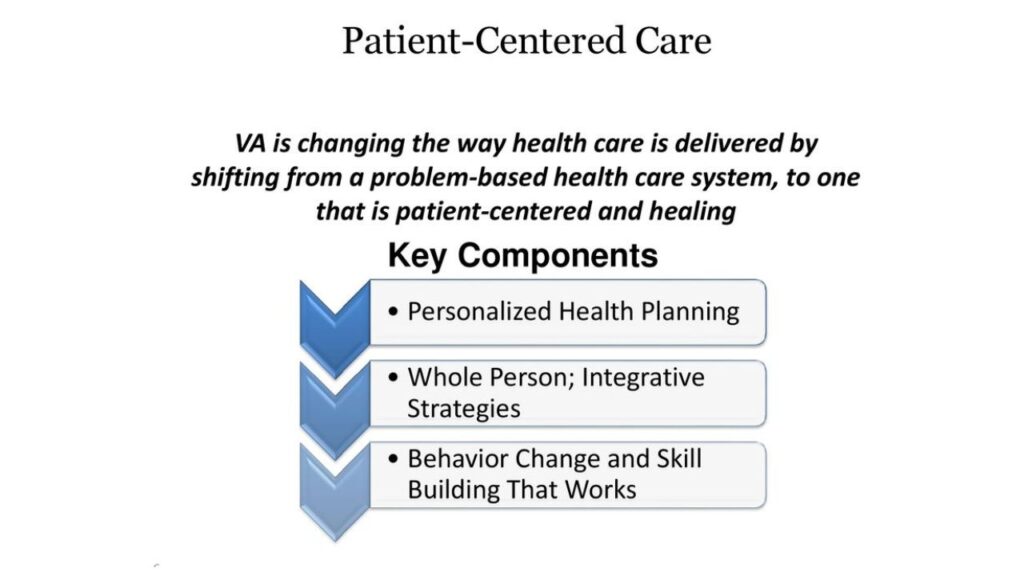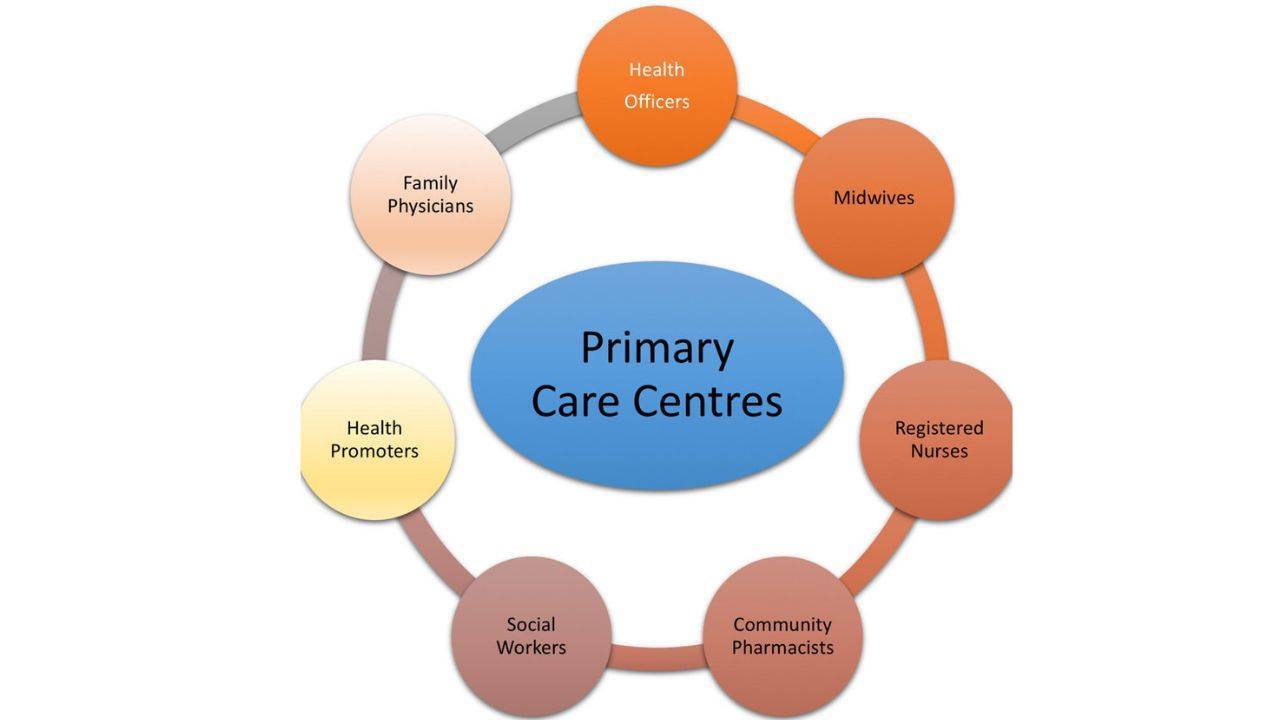In the ever-evolving landscape of the healthcare industry, the most important principle of primary health care remains a steadfast beacon. This holistic and comprehensive approach dynamically meets the changing needs of society, addressing the fundamental health requirements of individuals with unwavering dedication.
In this article, we delve into the intricate layers of primary health care, exploring its principles and, more specifically, identifying the most crucial principle that serves as its cornerstone.
Defining Primary Health Care
Before we unravel the essence of the most important principle, let’s establish a clear understanding of primary health care itself. Primary health care is not just a medical service but a philosophy that embraces a broad spectrum of health services, including preventive care, health education, and community involvement. This approach focuses on making healthcare accessible to all, ensuring that individuals receive the care they need when they need it.
Evolution of Primary Health Care
Over time, the idea of primary health care has changed. adapting to the changing dynamics of society and healthcare needs. Initially rooted in basic medical services, it has become a comprehensive framework considering social, economic, and cultural factors influencing health.
The Most Important Principle: Accessibility as the Cornerstone
Among the various principles that guide primary health care, one stands out as the bedrock of the entire system – accessibility. Accessibility ensures that healthcare services are available and easily reached by all individuals, irrespective of their geographical location, socio-economic status, or cultural background.
In essence, without accessibility, the other principles lose their effectiveness. A healthcare system may be holistic and patient-centred, but if it is not accessible, it fails to fulfil its fundamental purpose.
Holistic Approach to Health
The holistic approach, another crucial principle of primary health care, complements the importance of accessibility. It emphasizes viewing health in a broader context, considering physical well-being and mental and social aspects. A holistic approach recognizes that various factors influence health, including lifestyle, environment, and community support.
Community Involvement
Another integral principle is community involvement. Primary healthcare thrives when communities actively participate in healthcare decisions and initiatives. enabling communities to manage their own health fosters a sense of responsibility and creates a collaborative healthcare environment.
Prevention is Better than Cure
It’s a wise saying that “prevention is better than cure” in primary health care. Emphasizing preventive measures and over-reactive interventions contributes to a healthier population. Primary health care encourages proactive health practices,lessening the strain on healthcare systems and making general improvements well-being.
Patient-Centered Care
Shifting towards patient-centred care ensures that healthcare services are tailored to individual needs. Recognizing patients’ personal home care assistant unique experiences and preferences enhances the quality of care and fosters a trusting relationship between healthcare providers and patients.
Government Initiatives and Primary Health Care
The role of government initiatives is crucial in providing support and promoting primary health care. Examples of successful implementation can be found worldwide, demonstrating the positive impact of collaborative efforts between the government and healthcare providers.
Challenges in Implementing Primary Health Care Principles
Despite its importance, implementing primary healthcare principles comes with challenges. Identifying barriers and finding sustainable solutions are crucial steps in ensuring the effectiveness of primary health care on a global scale.
Global Impact of Primary Health Care
The global impact of primary health care must be considered. From improving health outcomes to addressing disparities, healthier and more equitable world.
Future Prospects
Looking ahead, innovations in primary health care are on the horizon. Technological advancements, coupled with a growing understanding of social determinants of health, pave the way for transformative changes in the healthcare landscape.
Personal Stories and Experiences
To truly grasp the significance of primary health care, we turn to personal stories and experiences. Real-life examples showcase the positive impact of a robust primary healthcare system on individuals, families, and communities.
Innovations and Technology in Primary Health Care
The future of primary health care is intricately tied to technological innovations. Integrating telemedicine, artificial intelligence, and digital health records promises to revolutionize healthcare delivery as we move forward. These advancements not only enhance accessibility but also streamline communication between patients and healthcare providers, ultimately enhancing the healthcare system’s overall effectiveness.
Adapting to Environmental Changes
Primary health care must adapt to environmental changes, both globally and locally. Environmental deterioration and the growing effects of climate change factors on health necessitates a proactive approach. Initiatives focusing on environmental health and sustainability can contribute significantly to primary health care’s effectiveness.
Addressing Mental Health in Primary Care
Recognizing the interconnected nature of health, The importance of incorporating mental health services intoo primary care. By destigmatizing mental health issues and providing accessible mental health resources, primary care can play a pivotal role in promoting holistic well-being.
Empowering Individuals Through Health Education
One effective strategy for promoting health is education. Comprehensive health education programs that enable people to make knowledgeable decisions about their health should be a part of primary healthcare. This prevents illness and fosters a culture of proactive health management.
Building Resilient Health Systems
To overcome challenges in implementing primary healthcare principles, Resilient health systems must be established.This involves investing in infrastructure, training healthcare professionals, and effectively developing strategies to address emerging health threats.
Celebrating Diversity in Health Care
Recognizing and celebrating diversity is integral to effective primary health care. Cultural competence and inclusivity should be embedded in healthcare practices, ensuring that individuals from all walks of life receive care that respects their values and beliefs.
Measuring Success Beyond Healthcare Metrics
Success in primary health care should be measured not only by traditional healthcare metrics but also by the improvement in the overall quality of life for individuals and communities. Factors such as education, employment, and social cohesion should be considered in assessing the true impact of primary health care.
Adopting a Proactive Approach to Aging Population
With an ageing population, primary health care must adopt a proactive approach to address the unique health challenges of older individuals. This includes preventive measures, senior care, and community support systems to enhance the well-being of older people.
The Role of Primary Health Care in Pandemic Preparedness
The recent global experiences with pandemics highlight the crucial role of primary health care in pandemic preparedness. Strengthening primary healthcare systems ensures a swift and effective response to health crises, safeguarding communities from the devastating effects of infectious diseases.
Collaboration Between Traditional and Modern Medicine
Recognizing the value of traditional medicine, primary health care should explore collaborative models that integrate traditional healing practices with modern medical approaches. This respects cultural diversity and expands the range of available healthcare options.
Encouraging Research and Innovation in Primary Health Care
Ongoing research and innovation are essential for the continuous improvement of primary health care. Investing in research projects that explore new treatments, preventive strategies, and community-based interventions contributes to the evolution of healthcare practices.
Sustainable Funding for Primary Health Care Initiatives
Ensuring the sustainability of primary healthcare initiatives requires stable and sufficient funding. Governments and international organizations should prioritize allocating resources to support primary health care, recognizing it as a fundamental pillar of a healthy society.
Global Collaboration for Health Equity
Achieving health equity on a global scale requires collaborative efforts. Countries, organizations, and individuals must collaborate to share best practices, resources, and expertise, fostering a world where everyone can access quality healthcare.
What is the most important principle of primary health care?
The healthcare sector is dynamic and constantly evolving. meet the changing needs of society. At the core of this evolution lies the concept of primary health care, a holistic and comprehensive approach to healthcare that addresses the fundamental health needs of individuals. In this article, we delve into the intricate layers of primary health care, exploring its principles and, more specifically, identifying the most crucial principle that serves as its cornerstone.
Defining Primary Health Care
Before we unravel the essence of the most important principle, let’s establish a clear understanding of primary health care itself. Primary health care is not just a medical service but a philosophy that embraces a broad spectrum of health services, including preventive care, health education, and community involvement. This approach focuses on making healthcare accessible to all, ensuring that individuals receive the care they need when they need it.
Evolution of Primary Health Care

Over time, the idea of primary health care has changed, adapting to the changing dynamics of society and healthcare needs. Initially rooted in basic medical services, it has become a comprehensive framework considering social, economic, and cultural factors influencing health.
The Most Important Principle: Accessibility as the Cornerstone
Among the various principles that guide primary health care, one stands out as the bedrock of the entire system – accessibility. Accessibility ensures that healthcare services are available and easily reached by all individuals, irrespective of their geographical location, socio-economic status, or cultural background.
In essence, without accessibility, the other principles lose their effectiveness. A healthcare system may be holistic and patient-centred, but if it is not accessible, it fails to fulfil its fundamental purpose.
Holistic Approach to Health
The holistic approach, another crucial principle of primary health care, complements the importance of accessibility. It emphasizes viewing health in a broader context, considering physical well-being and mental and social aspects. A holistic approach recognizes that various factors influence health, including lifestyle, environment, and community support.
Community Involvement
Another integral principle is community involvement. Primary healthcare thrives when communities actively participate in healthcare decisions and initiatives. enabling groups to take responsibility for their own health fosters a sense of responsibility and creates a collaborative healthcare environment.
Prevention is Better than Cure
The proverb “prevention is better than cure” is accurate. in primary health care. Emphasizing preventive measures and over-reactive interventions contributes to a healthier population. Primary health care encourages proactive health practices, lessening the strain on healthcare systems and making general improvements
well-being.
Patient-Centered Care
Shifting towards patient-centred care ensures that healthcare services are tailored to individual needs. Recognizing patients’ unique experiences and preferences enhances the quality of care and fosters a trusting relationship between healthcare providers and patients.
Government Initiatives and Primary Health Care
Governmental programs are essential for assisting and promoting primary health care. Examples of successful implementation can be found worldwide, demonstrating the positive impact of collaborative efforts between the government and healthcare providers.
Challenges in Implementing Primary Health Care Principles
Despite its importance, implementing primary healthcare principles comes with challenges. Identifying barriers and finding sustainable solutions are crucial steps in ensuring the effectiveness of primary health care on a global scale.
Global Impact of Primary Health Care
The global impact of primary health care must be considered. From improving health outcomes to addressing disparities, Primary care can potentially result in a healthier and more equitable world.
Future Prospects
Looking ahead, innovations in primary health care are on the horizon. Technological advancements, coupled with a growing understanding of social determinants of health, pave the way for transformative changes in the healthcare landscape.
Personal Stories and Experiences
To truly grasp the significance of primary health care, we turn to personal stories and experiences. Real-life examples showcase the positive impact of a robust primary healthcare system on individuals, families, and communities.
principle of primary health care
Primary healthcare principles encompass a comprehensive and accessible approach to healthcare that prioritizes essential, community-based services. It emphasizes prevention, managing the root causes of health issues, and promoting overall well-being. Central to this principle is the idea that healthcare should be universally available, affordable, and culturally sensitive.
Primary health care emphasizes the importance of community involvement, empowering individuals to take control of their health. It serves as the foundation for a healthcare system that focuses on meeting the basic health needs of individuals and communities, emphasising equity, collaboration, and holistic care.
PHC principles
PHC principles” refer to the core tenets of Primary Health Care, a holistic approach to healthcare that focuses on providing essential and accessible healthcare services to individuals and communities.
These principles, outlined in the Alma-Ata Declaration of 1978, include universality, equity, community participation, intersectoral collaboration, and a focus on managing social determinants of health. Emphasizing preventive care and community engagement, PHC principles aim to improve overall health outcomes by addressing health challenges at their roots and promoting health equity on a global scale.
What exist the 7 principles of primary health care?
The 7 principles of primary health care, outlined by the World Health Organization, emphasize equitable and comprehensive healthcare access. These principles include accessibility, fostering community involvement, addressing health needs comprehensively, emphasizing preventive care, promoting intersectoral collaboration, utilizing appropriate technology, and ensuring a focus on the social determinants of health.
These principles guide the delivery of healthcare services at the grassroots level, aiming to make health services universally accessible, community-centred, and responsive to the diverse health needs of individuals and communities worldwide. They are a foundation for building effective and sustainable primary healthcare systems globally.
Conclusion
In conclusion, the most important principle of primary health care is undoubtedly accessibility. Without accessible healthcare, the holistic, patient-centred, and preventive aspects lose effectiveness. As we navigate the complexities of healthcare, it is imperative to prioritize and strengthen accessibility to ensure that primary healthcare promotes well-being for all.
FAQ
Why is accessibility considered the most important principle of primary health care?
Accessibility ensures that healthcare is available to everyone, promoting inclusivity and equitable health outcomes.
How can communities actively participate in primary healthcare initiatives?
Community involvement can include health education programs, support groups, and collaborative decision-making with healthcare providers.
What role does the government play in supporting primary health care?
Governments can implement policies, allocate resources, and create initiatives to strengthen primary healthcare services.
Are there specific challenges in implementing primary healthcare principles globally?
Challenges include addressing socio-economic disparities and cultural differences and ensuring sustainable healthcare solutions.



